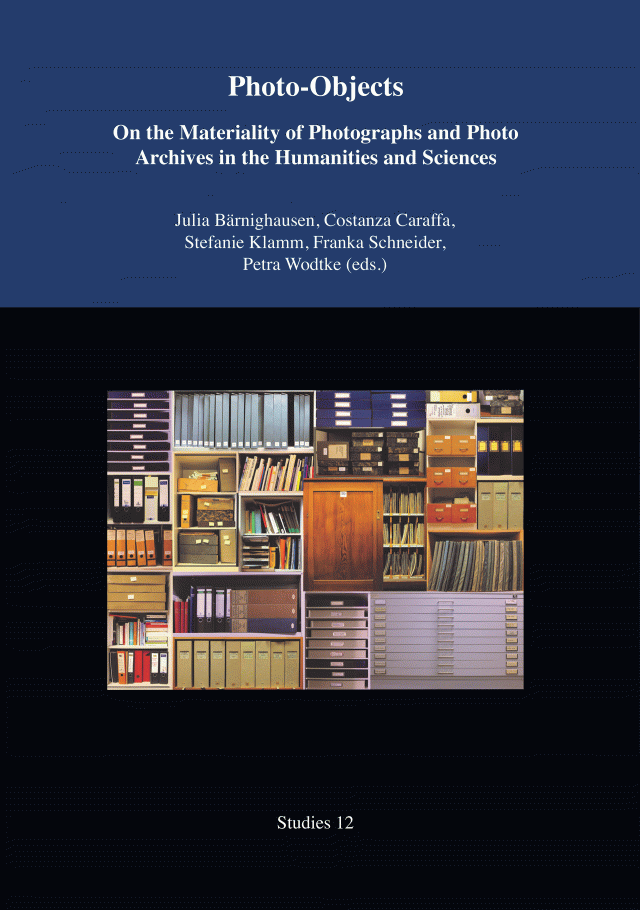
Photo-Objects
On the Materiality of Photographs and Photo Archives in the Humanities and Sciences
edited by Julia Bärnighausen, Costanza Caraffa, Stefanie Klamm, Franka Schneider, and Petra Wodtke
Photographs are not simply images but also historically shaped three-dimensional objects. They hold a physical presence, bear traces of handling and use, and circulate in social, political and institutional networks. Beyond their visual content, they are increasingly acknowledged as material "actors," not only indexically representing the objects they depict, but also playing a crucial role in the processes of knowledge-making within scientific practices. This has a historical dimension: most scientific disciplines rapidly adopted photography as an important research tool. Thereby, the various material qualities of photographs afforded certain types of uses in those disciplines. Specialized photo archives were founded as interfaces of technology and science and as laboratories for scientific thought.
This book highlights some recent approaches to photo-objects and photo archives as parts of a dynamic and material system of knowledge. Taking photographic materiality as its premise, it analyzes the epistemological potential of analog and digital photographs and photo archives in the humanities and sciences. Issues range from the circulation and distribution of photographs, the construction of disciplinary methods through the handling and use of photographs, the formation and transformation of a canon by photography and respective hierarchies of value, to the arrangement, classification and working processes in photo archives and other institutions.
Edition Open Access 2019
Max Planck Research Library for the History and Development of Knowledge. Studies 12
326 pages
ISBN 978-3-945561-39-3
e-ISBN [PDF] 978-3-945561-40-9
e-ISBN [EPUB] 978-3-945561-41-6


